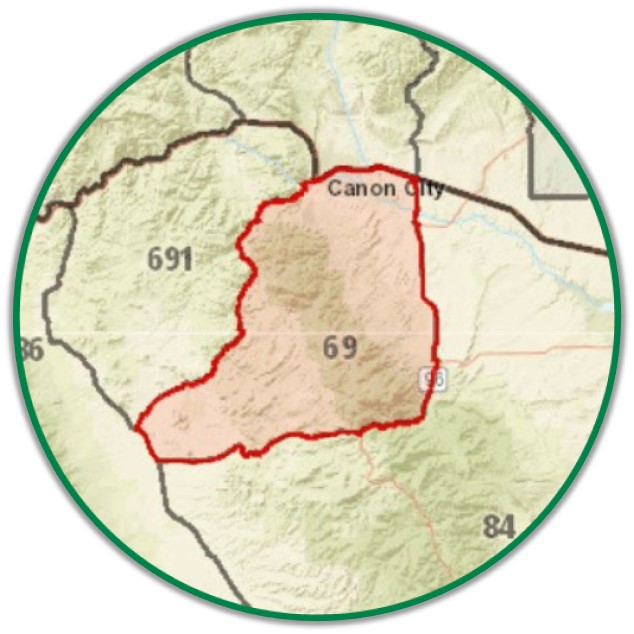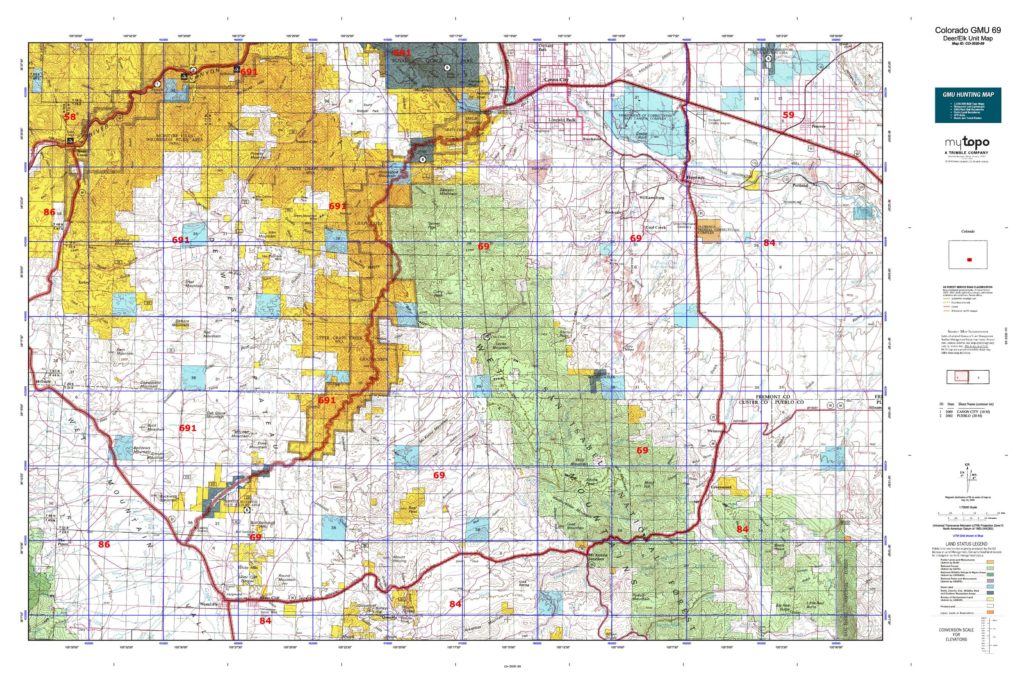No Available Hunts
- Landowner Tags for Sale
- Colorado Landowner Tags for Sale
- Colorado Mule Deer Tags
- Colorado Unit 2 Deer Tags for Sale
- Colorado Unit 3/301 Deer Tags
- Colorado Unit 4/5/14/214/441 Deer Tags
- Colorado Unit 11/211 Deer Tags for Sale
- Colorado Unit 21 Deer Tags for Sale
- Colorado Unit 22 Deer Tags for Sale
- Colorado Unit 20 Deer Tags
- Colorado Unit 30 Deer Tags for Sale
- Colorado Unit 35/36/45/361 Deer Tags
- Colorado Unit 40 Deer Tags for Sale
- Colorado Unit 41/42/421 Deer Tags for Sale
- Colorado Unit 44 Deer Tags
- Colorado Unit 48/56/481/561
- Colorado Unit 49,57,58,581 Deer Tags
- Colorado Unit 50, 500, 501 Deer Tags
- Colorado Unit 52, 411, 521 Deer Tags
- Colorado Unit 54 Deer Tags for Sale
- Colorado Unit 61 Deer Tags
- Colorado Unit 55 Deer Tags
- Colorado Unit 62 Deer Tags
- Colorado Unit 63 Deer Tags for Sale
- Colorado Unit 66 Deer Tags
- Colorado Unit 67 Deer Tags
- Colorado Unit 69 Deer Tags
- Colorado Unit 70 Deer Tags
- Colorado Unit 71/711 Deer Tags
- Colorado Unit 72/73 Deer Tags
- Colorado Unit 74 Deer Tags
- Colorado unit 79 Deer Tags
- Colorado Unit 80/81 Deer Tags
- Colorado Unit 85/851 Deer Tags
- Colorado Unit 551 Deer Tags
- Colorado Unit 741 Deer Tags for Sale
- Colorado Whitetail Deer Tags for Sale
- Colorado Unit 109 Whitetail Deer Tags
- Colorado Unit 116 Whitetail Deer Tags
- Colorado Unit 2 Elk Tags for Sale
- Colorado Unit 10 Elk Tags for Sale
- Colorado Unit 20 Elk Tags for Sale
- Colorado Unit 31 Elk Tags for Sale
- Colorado Unit 40 Elk Tags for Sale
- Colorado Unit 49 Elk Tags for Sale
- Colorado Unit 50 Elk Tags for Sale
- Colorado Unit 56 Elk Tags for Sale
- Colorado Unit 57/58 Elk Tags for Sale
- Colorado Unit 61 Elk Tags for Sale
- Colorado Unit 66 Elk Tags for Sale
- Colorado Unit 67 Elk Tags for Sale
- Colorado Unit 71/711 72/73 Elk Tags
- Colorado Unit 79 Elk Landowner Tags for Sale
- Colorado Elk Tags for Sale
- Colorado Unit 2 Elk Tags for Sale
- Colorado Unit 10 Elk Tags for Sale
- Colorado Unit 20 Elk Tags for Sale
- Colorado Unit 31 Elk Tags for Sale
- Colorado Unit 40 Elk Tags for Sale
- Colorado Unit 49 Elk Tags for Sale
- Colorado Unit 50 Elk Tags for Sale
- Colorado Unit 56 Elk Tags for Sale
- Colorado Unit 57/58 Elk Tags for Sale
- Colorado Unit 61 Elk Tags for Sale
- Colorado Unit 66 Elk Tags for Sale
- Colorado Unit 67 Elk Tags for Sale
- Colorado Unit 71/711 72/73 Elk Tags
- Colorado Unit 79 Elk Landowner Tags for Sale
- Colorado Antelope Tags for Sale
- Colorado Mule Deer Tags
- New Mexico Landowner Tags for Sale
- New Mexico Elk Tags for Sale
- New Mexico Unit 2 Elk Tags
- New Mexico Unit 4 Elk Tags
- New Mexico Unit 5A Elk Tags
- New Mexico Unit 5B Elk Tags
- New Mexico Unit 6A Elk Tags
- New Mexico Unit 6C Elk Tags
- New Mexico Unit 9 Elk Tags
- New Mexico Unit 10 Elk Tags
- New Mexico Unit 12 Elk Tags
- New Mexico Unit 13 Elk Tags
- New Mexico Unit 15 Elk Tags
- New Mexico Unit 16A Elk Tags
- New Mexico Unit 16B Elk Tags
- New Mexico Unit 16C Elk Tags
- New Mexico Unit 16D Elk Tags
- New Mexico Unit 16E Elk Tags
- New Mexico Unit 17 Elk Tags
- New Mexico Unit 21 Elk Tags
- New Mexico Unit 23 Elk Tags
- New Mexico Unit 24 Elk Tags
- New Mexico Unit 34 Elk Tags
- New Mexico Unit 36 Elk Tags
- New Mexico Unit 37 Elk Tags
- New Mexico Unit 45 Elk Tags
- New Mexico Unit 48 Elk Tags
- New Mexico Unit 49 Elk Tags
- New Mexico Unit 50 Elk Tags
- New Mexico Unit 51 Elk Tags
- New Mexico Unit 52 Elk Tags
- New Mexico Unit 53 Elk Tags
- New Mexico Unit 55 Elk Tags
- New Mexico Antelope Tags for Sale
- New Mexico Elk Tags for Sale
- Nevada Landowner Tags for Sale
- Utah Landowner Tags For Sale
- Colorado Landowner Tags for Sale
- Get Tags Sell Tags
- Hunting Info by State
- Colorado Cities Hunting Information
- Antonito, Colorado Hunting Information
- Aspen, Colorado Hunting Information
- Bailey, Colorado Hunting Information
- Buena Vista, Colorado Hunting Information
- Hunting Info Canon City
- Hunting Info Carbondale City
- Hunting Info Collbran City
- Hunting Info Cortez City
- Hunting Info Craig City
- Hunting Info Creede City
- Crested Butte, Colorado Hunting Information
- Hunting Information Cripple Creek
- Hunting Info De Beque City
- Hunting Info Dinosaur City
- Hunting Info Durango City
- Eagle, Colorado Hunting Information
- Hunting Info Estes Park
- Hunting Info Fairplay
- Hunting Info Fort Collins
- Gateway, Colorado Hunting Information
- Glenwood Springs, Colorado Hunting Information
- Granby, Colorado Hunting Information
- Grand Junction, Colorado Hunting Information
- Gunnison, Colorado Hunting Information
- Gypsum, Colorado Hunting Information
- Hayden, Colorado Hunting Information
- Hotchkiss, Colorado Hunting Information
- Kremmling, Colorado Hunting Information
- Lake City, Colorado Hunting Information
- Leadville, Colorado Hunting Information
- Longmont, Colorado Hunting Information
- Loveland, Colorado Hunting Information
- Mancos, Colorado Hunting Information
- Meeker, Colorado Hunting Information
- Hunting Information Monte Vista City
- Montrose, Colorado Hunting Information
- New Castle, Colorado Hunting Information
- Norwood, Colorado Hunting Information
- Nucla, Colorado Hunting Information
- Oak Creek, Colorado Hunting Information
- Ouray, Colorado Hunting Information
- Ridgway, Colorado Hunting Information
- Rifle, Colorado Hunting Information
- Saguache, Colorado Hunting Information
- Salida, Colorado Hunting Information
- Silverthorne, Colorado Hunting Information
- Steamboat Springs, Colorado Hunting Information
- Walden, Colorado Hunting Information
- Walsenburg, Colorado Hunting Information
- Westcliffe, Colorado Hunting Information
- Yampa, Colorado Hunting Information
- Colorado Units Hunting Information
- Colorado Unit 10 Hunting Information
- Colorado Unit 11 Hunting Information
- Colorado Unit 14 Hunting Information
- Colorado Unit 2 Hunting Information
- Colorado Unit 21 Hunting Information
- Colorado Unit 211 Hunting Information
- Colorado Unit 214 Hunting Information
- Colorado Unit 3 Hunting Information
- Colorado Unit 30 Hunting Information
- Colorado Unit 301 Hunting Information
- Colorado Unit 31 Hunting Information
- Colorado Unit 33 Hunting Information
- Colorado Unit 35 Hunting Information
- Colorado Unit 36 Hunting Information
- Colorado Unit 4 Hunting Information
- Colorado Unit 40 Hunting Information
- Colorado Unit 41 Hunting Information
- Colorado Unit 42 Hunting Information
- Colorado Unit 421 Hunting Information
- Colorado Unit 44 Hunting Information
- Colorado Unit 45 Hunting Information
- Colorado Unit 481 Hunting Information
- Colorado Unit 49 Hunting Information
- Colorado Unit 5 Hunting Information
- Colorado Unit 501 Hunting Information
- Colorado Unit 52 Hunting Information
- Colorado Unit 54 Hunting Information
- Colorado Unit 551 Hunting Information
- Colorado Unit 56 Hunting Information
- Colorado Unit 561 Hunting Information
- Colorado Unit 57 Hunting Information
- Colorado Unit 58 Hunting Information
- Colorado Unit 58 Hunting Information
- Colorado Unit 58 Hunting Information
- Colorado Unit 581 Hunting Information
- Colorado Unit 61 Hunting Information
- Colorado Unit 62 Hunting Information
- Colorado Unit 66 Hunting Information
- Colorado Unit 67 Hunting Information
- Colorado Unit 69 Hunting Information
- Colorado Unit 70 Hunting Information
- Colorado Unit 72 Hunting Information
- Colorado Unit 73 Hunting Information
- Colorado Unit 74 Hunting Information
- Colorado Unit 79 Hunting Information
- Colorado Unit 80 Hunting Information
- Colorado Unit 81 Hunting Information
- Colorado Unit 84 Hunting Information
- Colorado Unit 85 Hunting Information
- Colorado Unit 851 Hunting Information
- Colorado Unit 86 Hunting Information
- New Mexico Hunting Info by City
- Abiquiu, New Mexico Hunting Information
- Alamogordo, New Mexico Hunting Information
- Albuquerque, New Mexico Hunting Information
- Animas, New Mexico Hunting Information
- Artesia New Mexico Hunting Information
- Aztec New Mexico Hunting Information
- Belen New Mexico Hunting Information
- Carlsbad New Mexico Hunting Information
- Clayton New Mexico Hunting Information
- Clovis, New Mexico Hunting Information
- Cuba, New Mexico Hunting Information
- Hunting Information Deming City New Mexico
- Estancia, New Mexico Hunting Information
- Farmington, New Mexico Hunting Information
- Gallup, New Mexico Hunting Information
- Grants, New Mexico Hunting Information
- Hatch, New Mexico Hunting Information
- Roswell, New Mexico Hunting Information
- Santa Fe, New Mexico Hunting Information
- Santa Rosa, New Mexico Hunting Information
- Hunting Information Silver City
- Socorro, New Mexico Hunting Information
- Sunland Park, New Mexico Hunting Information
- Taos, New Mexico Hunting Information
- Truth or Consequences, New Mexico Hunting Information
- Tucumari, New Mexico Hunting Information
- Zuni, New Mexico Hunting Information
- New Mexico Units Hunting Information
- New Mexico Unit 10 Hunting Information
- New Mexico Unit 12 Hunting Information
- New Mexico Unit 13 Hunting Information
- New Mexico Unit 15 Hunting Information
- New Mexico Unit 16B Hunting Information
- New Mexico Unit 16C Hunting Information
- New Mexico Unit 16D Hunting Information
- New Mexico Unit 16E Hunting Information
- New Mexico Unit 17 Hunting Information
- New Mexico Unit 21A Hunting Information
- New Mexico Unit 21B Hunting Information
- New Mexico Unit 22 Hunting Information
- New Mexico Unit 23 Hunting Information
- New Mexico Unit 24 Hunting Information
- New Mexico Unit 2A Hunting Information
- New Mexico Unit 2B Hunting Information
- New Mexico Unit 2C Hunting Information
- New Mexico Unit 34 Hunting Information
- New Mexico Unit 37 Hunting Information
- New Mexico Unit 4 Hunting Information
- New Mexico Unit 45 Hunting Information
- New Mexico Unit 48 Hunting Information
- New Mexico Unit 49 Hunting Information
- New Mexico Unit 50 Hunting Information
- New Mexico Unit 51 Hunting Information
- New Mexico Unit 52 Hunting Information
- New Mexico Unit 53 Hunting Information
- New Mexico Unit 55A Hunting Information
- New Mexico Unit 55B Hunting Information
- New Mexico Unit 56 Hunting Information
- New Mexico Unit 6A Hunting Information
- New Mexico Unit 6C Hunting Information
- New Mexico Unit 9 Hunting Information
- Colorado Cities Hunting Information
- Guided Hunts & Outfitters
- Antelope Hunting Guides & Outfitters
- Elk Guides & Outfitters by State
- Bear Hunting Guides & Outfitters
- Alligator/Crocodile Hunting Guides & Outfitters
- Bison/Buffalo Hunting Guides & Outfitters
- Caribou Hunting Guides & Outfitters
- Deer – Blacktail Hunting Guides & Outfitters
- Deer – Coues Hunting Guides & Outfitters
- Deer – Mule Deer Hunting Guides & Outfitters
- Duck/Goose Hunting Guides & Outfitters
- Duck Hunting
- Alabama Duck Hunting
- Alaska Duck Hunting
- Arkansas Duck Hunting
- Colorado Duck Hunting
- Connecticut Duck Hunting
- Florida Duck Hunting
- Colorado Duck Hunting
- Illinois Duck Hunting
- Kansas Duck Hunting
- Louisiana Duck Hunting
- Maine Duck Hunting
- Maryland Duck Hunting
- Massachusetts Duck Hunts
- Michigan Duck Hunting
- Minnesota Duck Hunting
- Mississippi Duck Hunts
- New Hampshire Duck Hunts
- New Jersey Duck Hunts
- New York Duck Hunting
- North Carolina Duck Hunts
- North Dakota Duck Hunts
- Ohio Duck Hunting
- Oklahoma Duck Hunting
- Pennsylvania Duck Hunting
- Rhode Island Duck Hunting
- South Carolina Duck Hunting
- Tennessee Duck Hunting
- Texas Duck Hunting
- Utah Duck Hunting
- Vermont Duck Hunting
- Virginia Duck Hunting
- West Virginia Duck Hunting
- Wisconsin Duck Hunting
- Wyoming Duck Hunting
- Goose Hunting
- Alaska Goose Hunting
- Arkansas Goose Hunting
- Colorado Goose Hunting
- Connecticut Goose Hunting
- Florida Goose Hunting
- Georgia Goose Hunting
- Illinois Goose Hunting
- Louisiana Goose Hunting
- Maine Goose Hunting
- Maryland Goose Hunting
- Massachusetts Goose Hunting
- Michigan Goose Hunting
- Minnesota Goose Hunting
- Mississippi Goose Hunting
- New Hampshire Goose Hunting
- New Jersey Goose Hunting
- New York Goose Hunting
- North Carolina Goose Hunting
- North Dakota Goose Hunting
- Ohio Goose Hunting
- Oklahoma Goose Hunting
- Pennsylvania Goose Hunting
- Rhode Island Goose Hunting
- South Carolina Goose Hunting
- Texas Goose Hunting
- Utah Goose Hunting
- Vermont Goose Hunting
- Virginia Goose Hunting
- West Virginia Goose Hunting
- Wisconsin Goose Hunting
- Wyoming Goose Hunting
- Duck Hunting
- Contact Us
- Landowner Tags for Sale
- Colorado Landowner Tags for Sale
- Colorado Mule Deer Tags
- Colorado Unit 2 Deer Tags for Sale
- Colorado Unit 3/301 Deer Tags
- Colorado Unit 4/5/14/214/441 Deer Tags
- Colorado Unit 11/211 Deer Tags for Sale
- Colorado Unit 21 Deer Tags for Sale
- Colorado Unit 22 Deer Tags for Sale
- Colorado Unit 20 Deer Tags
- Colorado Unit 30 Deer Tags for Sale
- Colorado Unit 35/36/45/361 Deer Tags
- Colorado Unit 40 Deer Tags for Sale
- Colorado Unit 41/42/421 Deer Tags for Sale
- Colorado Unit 44 Deer Tags
- Colorado Unit 48/56/481/561
- Colorado Unit 49,57,58,581 Deer Tags
- Colorado Unit 50, 500, 501 Deer Tags
- Colorado Unit 52, 411, 521 Deer Tags
- Colorado Unit 54 Deer Tags for Sale
- Colorado Unit 61 Deer Tags
- Colorado Unit 55 Deer Tags
- Colorado Unit 62 Deer Tags
- Colorado Unit 63 Deer Tags for Sale
- Colorado Unit 66 Deer Tags
- Colorado Unit 67 Deer Tags
- Colorado Unit 69 Deer Tags
- Colorado Unit 70 Deer Tags
- Colorado Unit 71/711 Deer Tags
- Colorado Unit 72/73 Deer Tags
- Colorado Unit 74 Deer Tags
- Colorado unit 79 Deer Tags
- Colorado Unit 80/81 Deer Tags
- Colorado Unit 85/851 Deer Tags
- Colorado Unit 551 Deer Tags
- Colorado Unit 741 Deer Tags for Sale
- Colorado Whitetail Deer Tags for Sale
- Colorado Unit 109 Whitetail Deer Tags
- Colorado Unit 116 Whitetail Deer Tags
- Colorado Unit 2 Elk Tags for Sale
- Colorado Unit 10 Elk Tags for Sale
- Colorado Unit 20 Elk Tags for Sale
- Colorado Unit 31 Elk Tags for Sale
- Colorado Unit 40 Elk Tags for Sale
- Colorado Unit 49 Elk Tags for Sale
- Colorado Unit 50 Elk Tags for Sale
- Colorado Unit 56 Elk Tags for Sale
- Colorado Unit 57/58 Elk Tags for Sale
- Colorado Unit 61 Elk Tags for Sale
- Colorado Unit 66 Elk Tags for Sale
- Colorado Unit 67 Elk Tags for Sale
- Colorado Unit 71/711 72/73 Elk Tags
- Colorado Unit 79 Elk Landowner Tags for Sale
- Colorado Elk Tags for Sale
- Colorado Unit 2 Elk Tags for Sale
- Colorado Unit 10 Elk Tags for Sale
- Colorado Unit 20 Elk Tags for Sale
- Colorado Unit 31 Elk Tags for Sale
- Colorado Unit 40 Elk Tags for Sale
- Colorado Unit 49 Elk Tags for Sale
- Colorado Unit 50 Elk Tags for Sale
- Colorado Unit 56 Elk Tags for Sale
- Colorado Unit 57/58 Elk Tags for Sale
- Colorado Unit 61 Elk Tags for Sale
- Colorado Unit 66 Elk Tags for Sale
- Colorado Unit 67 Elk Tags for Sale
- Colorado Unit 71/711 72/73 Elk Tags
- Colorado Unit 79 Elk Landowner Tags for Sale
- Colorado Antelope Tags for Sale
- Colorado Mule Deer Tags
- New Mexico Landowner Tags for Sale
- New Mexico Elk Tags for Sale
- New Mexico Unit 2 Elk Tags
- New Mexico Unit 4 Elk Tags
- New Mexico Unit 5A Elk Tags
- New Mexico Unit 5B Elk Tags
- New Mexico Unit 6A Elk Tags
- New Mexico Unit 6C Elk Tags
- New Mexico Unit 9 Elk Tags
- New Mexico Unit 10 Elk Tags
- New Mexico Unit 12 Elk Tags
- New Mexico Unit 13 Elk Tags
- New Mexico Unit 15 Elk Tags
- New Mexico Unit 16A Elk Tags
- New Mexico Unit 16B Elk Tags
- New Mexico Unit 16C Elk Tags
- New Mexico Unit 16D Elk Tags
- New Mexico Unit 16E Elk Tags
- New Mexico Unit 17 Elk Tags
- New Mexico Unit 21 Elk Tags
- New Mexico Unit 23 Elk Tags
- New Mexico Unit 24 Elk Tags
- New Mexico Unit 34 Elk Tags
- New Mexico Unit 36 Elk Tags
- New Mexico Unit 37 Elk Tags
- New Mexico Unit 45 Elk Tags
- New Mexico Unit 48 Elk Tags
- New Mexico Unit 49 Elk Tags
- New Mexico Unit 50 Elk Tags
- New Mexico Unit 51 Elk Tags
- New Mexico Unit 52 Elk Tags
- New Mexico Unit 53 Elk Tags
- New Mexico Unit 55 Elk Tags
- New Mexico Antelope Tags for Sale
- New Mexico Elk Tags for Sale
- Nevada Landowner Tags for Sale
- Utah Landowner Tags For Sale
- Colorado Landowner Tags for Sale
- Get Tags Sell Tags
- Hunting Info by State
- Colorado Cities Hunting Information
- Antonito, Colorado Hunting Information
- Aspen, Colorado Hunting Information
- Bailey, Colorado Hunting Information
- Buena Vista, Colorado Hunting Information
- Hunting Info Canon City
- Hunting Info Carbondale City
- Hunting Info Collbran City
- Hunting Info Cortez City
- Hunting Info Craig City
- Hunting Info Creede City
- Crested Butte, Colorado Hunting Information
- Hunting Information Cripple Creek
- Hunting Info De Beque City
- Hunting Info Dinosaur City
- Hunting Info Durango City
- Eagle, Colorado Hunting Information
- Hunting Info Estes Park
- Hunting Info Fairplay
- Hunting Info Fort Collins
- Gateway, Colorado Hunting Information
- Glenwood Springs, Colorado Hunting Information
- Granby, Colorado Hunting Information
- Grand Junction, Colorado Hunting Information
- Gunnison, Colorado Hunting Information
- Gypsum, Colorado Hunting Information
- Hayden, Colorado Hunting Information
- Hotchkiss, Colorado Hunting Information
- Kremmling, Colorado Hunting Information
- Lake City, Colorado Hunting Information
- Leadville, Colorado Hunting Information
- Longmont, Colorado Hunting Information
- Loveland, Colorado Hunting Information
- Mancos, Colorado Hunting Information
- Meeker, Colorado Hunting Information
- Hunting Information Monte Vista City
- Montrose, Colorado Hunting Information
- New Castle, Colorado Hunting Information
- Norwood, Colorado Hunting Information
- Nucla, Colorado Hunting Information
- Oak Creek, Colorado Hunting Information
- Ouray, Colorado Hunting Information
- Ridgway, Colorado Hunting Information
- Rifle, Colorado Hunting Information
- Saguache, Colorado Hunting Information
- Salida, Colorado Hunting Information
- Silverthorne, Colorado Hunting Information
- Steamboat Springs, Colorado Hunting Information
- Walden, Colorado Hunting Information
- Walsenburg, Colorado Hunting Information
- Westcliffe, Colorado Hunting Information
- Yampa, Colorado Hunting Information
- Colorado Units Hunting Information
- Colorado Unit 10 Hunting Information
- Colorado Unit 11 Hunting Information
- Colorado Unit 14 Hunting Information
- Colorado Unit 2 Hunting Information
- Colorado Unit 21 Hunting Information
- Colorado Unit 211 Hunting Information
- Colorado Unit 214 Hunting Information
- Colorado Unit 3 Hunting Information
- Colorado Unit 30 Hunting Information
- Colorado Unit 301 Hunting Information
- Colorado Unit 31 Hunting Information
- Colorado Unit 33 Hunting Information
- Colorado Unit 35 Hunting Information
- Colorado Unit 36 Hunting Information
- Colorado Unit 4 Hunting Information
- Colorado Unit 40 Hunting Information
- Colorado Unit 41 Hunting Information
- Colorado Unit 42 Hunting Information
- Colorado Unit 421 Hunting Information
- Colorado Unit 44 Hunting Information
- Colorado Unit 45 Hunting Information
- Colorado Unit 481 Hunting Information
- Colorado Unit 49 Hunting Information
- Colorado Unit 5 Hunting Information
- Colorado Unit 501 Hunting Information
- Colorado Unit 52 Hunting Information
- Colorado Unit 54 Hunting Information
- Colorado Unit 551 Hunting Information
- Colorado Unit 56 Hunting Information
- Colorado Unit 561 Hunting Information
- Colorado Unit 57 Hunting Information
- Colorado Unit 58 Hunting Information
- Colorado Unit 58 Hunting Information
- Colorado Unit 58 Hunting Information
- Colorado Unit 581 Hunting Information
- Colorado Unit 61 Hunting Information
- Colorado Unit 62 Hunting Information
- Colorado Unit 66 Hunting Information
- Colorado Unit 67 Hunting Information
- Colorado Unit 69 Hunting Information
- Colorado Unit 70 Hunting Information
- Colorado Unit 72 Hunting Information
- Colorado Unit 73 Hunting Information
- Colorado Unit 74 Hunting Information
- Colorado Unit 79 Hunting Information
- Colorado Unit 80 Hunting Information
- Colorado Unit 81 Hunting Information
- Colorado Unit 84 Hunting Information
- Colorado Unit 85 Hunting Information
- Colorado Unit 851 Hunting Information
- Colorado Unit 86 Hunting Information
- New Mexico Hunting Info by City
- Abiquiu, New Mexico Hunting Information
- Alamogordo, New Mexico Hunting Information
- Albuquerque, New Mexico Hunting Information
- Animas, New Mexico Hunting Information
- Artesia New Mexico Hunting Information
- Aztec New Mexico Hunting Information
- Belen New Mexico Hunting Information
- Carlsbad New Mexico Hunting Information
- Clayton New Mexico Hunting Information
- Clovis, New Mexico Hunting Information
- Cuba, New Mexico Hunting Information
- Hunting Information Deming City New Mexico
- Estancia, New Mexico Hunting Information
- Farmington, New Mexico Hunting Information
- Gallup, New Mexico Hunting Information
- Grants, New Mexico Hunting Information
- Hatch, New Mexico Hunting Information
- Roswell, New Mexico Hunting Information
- Santa Fe, New Mexico Hunting Information
- Santa Rosa, New Mexico Hunting Information
- Hunting Information Silver City
- Socorro, New Mexico Hunting Information
- Sunland Park, New Mexico Hunting Information
- Taos, New Mexico Hunting Information
- Truth or Consequences, New Mexico Hunting Information
- Tucumari, New Mexico Hunting Information
- Zuni, New Mexico Hunting Information
- New Mexico Units Hunting Information
- New Mexico Unit 10 Hunting Information
- New Mexico Unit 12 Hunting Information
- New Mexico Unit 13 Hunting Information
- New Mexico Unit 15 Hunting Information
- New Mexico Unit 16B Hunting Information
- New Mexico Unit 16C Hunting Information
- New Mexico Unit 16D Hunting Information
- New Mexico Unit 16E Hunting Information
- New Mexico Unit 17 Hunting Information
- New Mexico Unit 21A Hunting Information
- New Mexico Unit 21B Hunting Information
- New Mexico Unit 22 Hunting Information
- New Mexico Unit 23 Hunting Information
- New Mexico Unit 24 Hunting Information
- New Mexico Unit 2A Hunting Information
- New Mexico Unit 2B Hunting Information
- New Mexico Unit 2C Hunting Information
- New Mexico Unit 34 Hunting Information
- New Mexico Unit 37 Hunting Information
- New Mexico Unit 4 Hunting Information
- New Mexico Unit 45 Hunting Information
- New Mexico Unit 48 Hunting Information
- New Mexico Unit 49 Hunting Information
- New Mexico Unit 50 Hunting Information
- New Mexico Unit 51 Hunting Information
- New Mexico Unit 52 Hunting Information
- New Mexico Unit 53 Hunting Information
- New Mexico Unit 55A Hunting Information
- New Mexico Unit 55B Hunting Information
- New Mexico Unit 56 Hunting Information
- New Mexico Unit 6A Hunting Information
- New Mexico Unit 6C Hunting Information
- New Mexico Unit 9 Hunting Information
- Colorado Cities Hunting Information
- Guided Hunts & Outfitters
- Antelope Hunting Guides & Outfitters
- Elk Guides & Outfitters by State
- Bear Hunting Guides & Outfitters
- Alligator/Crocodile Hunting Guides & Outfitters
- Bison/Buffalo Hunting Guides & Outfitters
- Caribou Hunting Guides & Outfitters
- Deer – Blacktail Hunting Guides & Outfitters
- Deer – Coues Hunting Guides & Outfitters
- Deer – Mule Deer Hunting Guides & Outfitters
- Duck/Goose Hunting Guides & Outfitters
- Duck Hunting
- Alabama Duck Hunting
- Alaska Duck Hunting
- Arkansas Duck Hunting
- Colorado Duck Hunting
- Connecticut Duck Hunting
- Florida Duck Hunting
- Colorado Duck Hunting
- Illinois Duck Hunting
- Kansas Duck Hunting
- Louisiana Duck Hunting
- Maine Duck Hunting
- Maryland Duck Hunting
- Massachusetts Duck Hunts
- Michigan Duck Hunting
- Minnesota Duck Hunting
- Mississippi Duck Hunts
- New Hampshire Duck Hunts
- New Jersey Duck Hunts
- New York Duck Hunting
- North Carolina Duck Hunts
- North Dakota Duck Hunts
- Ohio Duck Hunting
- Oklahoma Duck Hunting
- Pennsylvania Duck Hunting
- Rhode Island Duck Hunting
- South Carolina Duck Hunting
- Tennessee Duck Hunting
- Texas Duck Hunting
- Utah Duck Hunting
- Vermont Duck Hunting
- Virginia Duck Hunting
- West Virginia Duck Hunting
- Wisconsin Duck Hunting
- Wyoming Duck Hunting
- Goose Hunting
- Alaska Goose Hunting
- Arkansas Goose Hunting
- Colorado Goose Hunting
- Connecticut Goose Hunting
- Florida Goose Hunting
- Georgia Goose Hunting
- Illinois Goose Hunting
- Louisiana Goose Hunting
- Maine Goose Hunting
- Maryland Goose Hunting
- Massachusetts Goose Hunting
- Michigan Goose Hunting
- Minnesota Goose Hunting
- Mississippi Goose Hunting
- New Hampshire Goose Hunting
- New Jersey Goose Hunting
- New York Goose Hunting
- North Carolina Goose Hunting
- North Dakota Goose Hunting
- Ohio Goose Hunting
- Oklahoma Goose Hunting
- Pennsylvania Goose Hunting
- Rhode Island Goose Hunting
- South Carolina Goose Hunting
- Texas Goose Hunting
- Utah Goose Hunting
- Vermont Goose Hunting
- Virginia Goose Hunting
- West Virginia Goose Hunting
- Wisconsin Goose Hunting
- Wyoming Goose Hunting
- Duck Hunting
- Contact Us
- Landowner Tags for Sale
- Colorado Landowner Tags for Sale
- Colorado Mule Deer Tags
- Colorado Unit 2 Deer Tags for Sale
- Colorado Unit 3/301 Deer Tags
- Colorado Unit 4/5/14/214/441 Deer Tags
- Colorado Unit 11/211 Deer Tags for Sale
- Colorado Unit 21 Deer Tags for Sale
- Colorado Unit 22 Deer Tags for Sale
- Colorado Unit 20 Deer Tags
- Colorado Unit 30 Deer Tags for Sale
- Colorado Unit 35/36/45/361 Deer Tags
- Colorado Unit 40 Deer Tags for Sale
- Colorado Unit 41/42/421 Deer Tags for Sale
- Colorado Unit 44 Deer Tags
- Colorado Unit 48/56/481/561
- Colorado Unit 49,57,58,581 Deer Tags
- Colorado Unit 50, 500, 501 Deer Tags
- Colorado Unit 52, 411, 521 Deer Tags
- Colorado Unit 54 Deer Tags for Sale
- Colorado Unit 61 Deer Tags
- Colorado Unit 55 Deer Tags
- Colorado Unit 62 Deer Tags
- Colorado Unit 63 Deer Tags for Sale
- Colorado Unit 66 Deer Tags
- Colorado Unit 67 Deer Tags
- Colorado Unit 69 Deer Tags
- Colorado Unit 70 Deer Tags
- Colorado Unit 71/711 Deer Tags
- Colorado Unit 72/73 Deer Tags
- Colorado Unit 74 Deer Tags
- Colorado unit 79 Deer Tags
- Colorado Unit 80/81 Deer Tags
- Colorado Unit 85/851 Deer Tags
- Colorado Unit 551 Deer Tags
- Colorado Unit 741 Deer Tags for Sale
- Colorado Whitetail Deer Tags for Sale
- Colorado Unit 109 Whitetail Deer Tags
- Colorado Unit 116 Whitetail Deer Tags
- Colorado Unit 2 Elk Tags for Sale
- Colorado Unit 10 Elk Tags for Sale
- Colorado Unit 20 Elk Tags for Sale
- Colorado Unit 31 Elk Tags for Sale
- Colorado Unit 40 Elk Tags for Sale
- Colorado Unit 49 Elk Tags for Sale
- Colorado Unit 50 Elk Tags for Sale
- Colorado Unit 56 Elk Tags for Sale
- Colorado Unit 57/58 Elk Tags for Sale
- Colorado Unit 61 Elk Tags for Sale
- Colorado Unit 66 Elk Tags for Sale
- Colorado Unit 67 Elk Tags for Sale
- Colorado Unit 71/711 72/73 Elk Tags
- Colorado Unit 79 Elk Landowner Tags for Sale
- Colorado Elk Tags for Sale
- Colorado Unit 2 Elk Tags for Sale
- Colorado Unit 10 Elk Tags for Sale
- Colorado Unit 20 Elk Tags for Sale
- Colorado Unit 31 Elk Tags for Sale
- Colorado Unit 40 Elk Tags for Sale
- Colorado Unit 49 Elk Tags for Sale
- Colorado Unit 50 Elk Tags for Sale
- Colorado Unit 56 Elk Tags for Sale
- Colorado Unit 57/58 Elk Tags for Sale
- Colorado Unit 61 Elk Tags for Sale
- Colorado Unit 66 Elk Tags for Sale
- Colorado Unit 67 Elk Tags for Sale
- Colorado Unit 71/711 72/73 Elk Tags
- Colorado Unit 79 Elk Landowner Tags for Sale
- Colorado Antelope Tags for Sale
- Colorado Mule Deer Tags
- New Mexico Landowner Tags for Sale
- New Mexico Elk Tags for Sale
- New Mexico Unit 2 Elk Tags
- New Mexico Unit 4 Elk Tags
- New Mexico Unit 5A Elk Tags
- New Mexico Unit 5B Elk Tags
- New Mexico Unit 6A Elk Tags
- New Mexico Unit 6C Elk Tags
- New Mexico Unit 9 Elk Tags
- New Mexico Unit 10 Elk Tags
- New Mexico Unit 12 Elk Tags
- New Mexico Unit 13 Elk Tags
- New Mexico Unit 15 Elk Tags
- New Mexico Unit 16A Elk Tags
- New Mexico Unit 16B Elk Tags
- New Mexico Unit 16C Elk Tags
- New Mexico Unit 16D Elk Tags
- New Mexico Unit 16E Elk Tags
- New Mexico Unit 17 Elk Tags
- New Mexico Unit 21 Elk Tags
- New Mexico Unit 23 Elk Tags
- New Mexico Unit 24 Elk Tags
- New Mexico Unit 34 Elk Tags
- New Mexico Unit 36 Elk Tags
- New Mexico Unit 37 Elk Tags
- New Mexico Unit 45 Elk Tags
- New Mexico Unit 48 Elk Tags
- New Mexico Unit 49 Elk Tags
- New Mexico Unit 50 Elk Tags
- New Mexico Unit 51 Elk Tags
- New Mexico Unit 52 Elk Tags
- New Mexico Unit 53 Elk Tags
- New Mexico Unit 55 Elk Tags
- New Mexico Antelope Tags for Sale
- New Mexico Elk Tags for Sale
- Nevada Landowner Tags for Sale
- Utah Landowner Tags For Sale
- Colorado Landowner Tags for Sale
- Get Tags Sell Tags
- Hunting Info by State
- Colorado Cities Hunting Information
- Antonito, Colorado Hunting Information
- Aspen, Colorado Hunting Information
- Bailey, Colorado Hunting Information
- Buena Vista, Colorado Hunting Information
- Hunting Info Canon City
- Hunting Info Carbondale City
- Hunting Info Collbran City
- Hunting Info Cortez City
- Hunting Info Craig City
- Hunting Info Creede City
- Crested Butte, Colorado Hunting Information
- Hunting Information Cripple Creek
- Hunting Info De Beque City
- Hunting Info Dinosaur City
- Hunting Info Durango City
- Eagle, Colorado Hunting Information
- Hunting Info Estes Park
- Hunting Info Fairplay
- Hunting Info Fort Collins
- Gateway, Colorado Hunting Information
- Glenwood Springs, Colorado Hunting Information
- Granby, Colorado Hunting Information
- Grand Junction, Colorado Hunting Information
- Gunnison, Colorado Hunting Information
- Gypsum, Colorado Hunting Information
- Hayden, Colorado Hunting Information
- Hotchkiss, Colorado Hunting Information
- Kremmling, Colorado Hunting Information
- Lake City, Colorado Hunting Information
- Leadville, Colorado Hunting Information
- Longmont, Colorado Hunting Information
- Loveland, Colorado Hunting Information
- Mancos, Colorado Hunting Information
- Meeker, Colorado Hunting Information
- Hunting Information Monte Vista City
- Montrose, Colorado Hunting Information
- New Castle, Colorado Hunting Information
- Norwood, Colorado Hunting Information
- Nucla, Colorado Hunting Information
- Oak Creek, Colorado Hunting Information
- Ouray, Colorado Hunting Information
- Ridgway, Colorado Hunting Information
- Rifle, Colorado Hunting Information
- Saguache, Colorado Hunting Information
- Salida, Colorado Hunting Information
- Silverthorne, Colorado Hunting Information
- Steamboat Springs, Colorado Hunting Information
- Walden, Colorado Hunting Information
- Walsenburg, Colorado Hunting Information
- Westcliffe, Colorado Hunting Information
- Yampa, Colorado Hunting Information
- Colorado Units Hunting Information
- Colorado Unit 10 Hunting Information
- Colorado Unit 11 Hunting Information
- Colorado Unit 14 Hunting Information
- Colorado Unit 2 Hunting Information
- Colorado Unit 21 Hunting Information
- Colorado Unit 211 Hunting Information
- Colorado Unit 214 Hunting Information
- Colorado Unit 3 Hunting Information
- Colorado Unit 30 Hunting Information
- Colorado Unit 301 Hunting Information
- Colorado Unit 31 Hunting Information
- Colorado Unit 33 Hunting Information
- Colorado Unit 35 Hunting Information
- Colorado Unit 36 Hunting Information
- Colorado Unit 4 Hunting Information
- Colorado Unit 40 Hunting Information
- Colorado Unit 41 Hunting Information
- Colorado Unit 42 Hunting Information
- Colorado Unit 421 Hunting Information
- Colorado Unit 44 Hunting Information
- Colorado Unit 45 Hunting Information
- Colorado Unit 481 Hunting Information
- Colorado Unit 49 Hunting Information
- Colorado Unit 5 Hunting Information
- Colorado Unit 501 Hunting Information
- Colorado Unit 52 Hunting Information
- Colorado Unit 54 Hunting Information
- Colorado Unit 551 Hunting Information
- Colorado Unit 56 Hunting Information
- Colorado Unit 561 Hunting Information
- Colorado Unit 57 Hunting Information
- Colorado Unit 58 Hunting Information
- Colorado Unit 58 Hunting Information
- Colorado Unit 58 Hunting Information
- Colorado Unit 581 Hunting Information
- Colorado Unit 61 Hunting Information
- Colorado Unit 62 Hunting Information
- Colorado Unit 66 Hunting Information
- Colorado Unit 67 Hunting Information
- Colorado Unit 69 Hunting Information
- Colorado Unit 70 Hunting Information
- Colorado Unit 72 Hunting Information
- Colorado Unit 73 Hunting Information
- Colorado Unit 74 Hunting Information
- Colorado Unit 79 Hunting Information
- Colorado Unit 80 Hunting Information
- Colorado Unit 81 Hunting Information
- Colorado Unit 84 Hunting Information
- Colorado Unit 85 Hunting Information
- Colorado Unit 851 Hunting Information
- Colorado Unit 86 Hunting Information
- New Mexico Hunting Info by City
- Abiquiu, New Mexico Hunting Information
- Alamogordo, New Mexico Hunting Information
- Albuquerque, New Mexico Hunting Information
- Animas, New Mexico Hunting Information
- Artesia New Mexico Hunting Information
- Aztec New Mexico Hunting Information
- Belen New Mexico Hunting Information
- Carlsbad New Mexico Hunting Information
- Clayton New Mexico Hunting Information
- Clovis, New Mexico Hunting Information
- Cuba, New Mexico Hunting Information
- Hunting Information Deming City New Mexico
- Estancia, New Mexico Hunting Information
- Farmington, New Mexico Hunting Information
- Gallup, New Mexico Hunting Information
- Grants, New Mexico Hunting Information
- Hatch, New Mexico Hunting Information
- Roswell, New Mexico Hunting Information
- Santa Fe, New Mexico Hunting Information
- Santa Rosa, New Mexico Hunting Information
- Hunting Information Silver City
- Socorro, New Mexico Hunting Information
- Sunland Park, New Mexico Hunting Information
- Taos, New Mexico Hunting Information
- Truth or Consequences, New Mexico Hunting Information
- Tucumari, New Mexico Hunting Information
- Zuni, New Mexico Hunting Information
- New Mexico Units Hunting Information
- New Mexico Unit 10 Hunting Information
- New Mexico Unit 12 Hunting Information
- New Mexico Unit 13 Hunting Information
- New Mexico Unit 15 Hunting Information
- New Mexico Unit 16B Hunting Information
- New Mexico Unit 16C Hunting Information
- New Mexico Unit 16D Hunting Information
- New Mexico Unit 16E Hunting Information
- New Mexico Unit 17 Hunting Information
- New Mexico Unit 21A Hunting Information
- New Mexico Unit 21B Hunting Information
- New Mexico Unit 22 Hunting Information
- New Mexico Unit 23 Hunting Information
- New Mexico Unit 24 Hunting Information
- New Mexico Unit 2A Hunting Information
- New Mexico Unit 2B Hunting Information
- New Mexico Unit 2C Hunting Information
- New Mexico Unit 34 Hunting Information
- New Mexico Unit 37 Hunting Information
- New Mexico Unit 4 Hunting Information
- New Mexico Unit 45 Hunting Information
- New Mexico Unit 48 Hunting Information
- New Mexico Unit 49 Hunting Information
- New Mexico Unit 50 Hunting Information
- New Mexico Unit 51 Hunting Information
- New Mexico Unit 52 Hunting Information
- New Mexico Unit 53 Hunting Information
- New Mexico Unit 55A Hunting Information
- New Mexico Unit 55B Hunting Information
- New Mexico Unit 56 Hunting Information
- New Mexico Unit 6A Hunting Information
- New Mexico Unit 6C Hunting Information
- New Mexico Unit 9 Hunting Information
- Colorado Cities Hunting Information
- Guided Hunts & Outfitters
- Antelope Hunting Guides & Outfitters
- Elk Guides & Outfitters by State
- Bear Hunting Guides & Outfitters
- Alligator/Crocodile Hunting Guides & Outfitters
- Bison/Buffalo Hunting Guides & Outfitters
- Caribou Hunting Guides & Outfitters
- Deer – Blacktail Hunting Guides & Outfitters
- Deer – Coues Hunting Guides & Outfitters
- Deer – Mule Deer Hunting Guides & Outfitters
- Duck/Goose Hunting Guides & Outfitters
- Duck Hunting
- Alabama Duck Hunting
- Alaska Duck Hunting
- Arkansas Duck Hunting
- Colorado Duck Hunting
- Connecticut Duck Hunting
- Florida Duck Hunting
- Colorado Duck Hunting
- Illinois Duck Hunting
- Kansas Duck Hunting
- Louisiana Duck Hunting
- Maine Duck Hunting
- Maryland Duck Hunting
- Massachusetts Duck Hunts
- Michigan Duck Hunting
- Minnesota Duck Hunting
- Mississippi Duck Hunts
- New Hampshire Duck Hunts
- New Jersey Duck Hunts
- New York Duck Hunting
- North Carolina Duck Hunts
- North Dakota Duck Hunts
- Ohio Duck Hunting
- Oklahoma Duck Hunting
- Pennsylvania Duck Hunting
- Rhode Island Duck Hunting
- South Carolina Duck Hunting
- Tennessee Duck Hunting
- Texas Duck Hunting
- Utah Duck Hunting
- Vermont Duck Hunting
- Virginia Duck Hunting
- West Virginia Duck Hunting
- Wisconsin Duck Hunting
- Wyoming Duck Hunting
- Goose Hunting
- Alaska Goose Hunting
- Arkansas Goose Hunting
- Colorado Goose Hunting
- Connecticut Goose Hunting
- Florida Goose Hunting
- Georgia Goose Hunting
- Illinois Goose Hunting
- Louisiana Goose Hunting
- Maine Goose Hunting
- Maryland Goose Hunting
- Massachusetts Goose Hunting
- Michigan Goose Hunting
- Minnesota Goose Hunting
- Mississippi Goose Hunting
- New Hampshire Goose Hunting
- New Jersey Goose Hunting
- New York Goose Hunting
- North Carolina Goose Hunting
- North Dakota Goose Hunting
- Ohio Goose Hunting
- Oklahoma Goose Hunting
- Pennsylvania Goose Hunting
- Rhode Island Goose Hunting
- South Carolina Goose Hunting
- Texas Goose Hunting
- Utah Goose Hunting
- Vermont Goose Hunting
- Virginia Goose Hunting
- West Virginia Goose Hunting
- Wisconsin Goose Hunting
- Wyoming Goose Hunting
- Duck Hunting
- Contact Us
- Landowner Tags for Sale
- Colorado Landowner Tags for Sale
- Colorado Mule Deer Tags
- Colorado Unit 2 Deer Tags for Sale
- Colorado Unit 3/301 Deer Tags
- Colorado Unit 4/5/14/214/441 Deer Tags
- Colorado Unit 11/211 Deer Tags for Sale
- Colorado Unit 21 Deer Tags for Sale
- Colorado Unit 22 Deer Tags for Sale
- Colorado Unit 20 Deer Tags
- Colorado Unit 30 Deer Tags for Sale
- Colorado Unit 35/36/45/361 Deer Tags
- Colorado Unit 40 Deer Tags for Sale
- Colorado Unit 41/42/421 Deer Tags for Sale
- Colorado Unit 44 Deer Tags
- Colorado Unit 48/56/481/561
- Colorado Unit 49,57,58,581 Deer Tags
- Colorado Unit 50, 500, 501 Deer Tags
- Colorado Unit 52, 411, 521 Deer Tags
- Colorado Unit 54 Deer Tags for Sale
- Colorado Unit 61 Deer Tags
- Colorado Unit 55 Deer Tags
- Colorado Unit 62 Deer Tags
- Colorado Unit 63 Deer Tags for Sale
- Colorado Unit 66 Deer Tags
- Colorado Unit 67 Deer Tags
- Colorado Unit 69 Deer Tags
- Colorado Unit 70 Deer Tags
- Colorado Unit 71/711 Deer Tags
- Colorado Unit 72/73 Deer Tags
- Colorado Unit 74 Deer Tags
- Colorado unit 79 Deer Tags
- Colorado Unit 80/81 Deer Tags
- Colorado Unit 85/851 Deer Tags
- Colorado Unit 551 Deer Tags
- Colorado Unit 741 Deer Tags for Sale
- Colorado Whitetail Deer Tags for Sale
- Colorado Unit 109 Whitetail Deer Tags
- Colorado Unit 116 Whitetail Deer Tags
- Colorado Unit 2 Elk Tags for Sale
- Colorado Unit 10 Elk Tags for Sale
- Colorado Unit 20 Elk Tags for Sale
- Colorado Unit 31 Elk Tags for Sale
- Colorado Unit 40 Elk Tags for Sale
- Colorado Unit 49 Elk Tags for Sale
- Colorado Unit 50 Elk Tags for Sale
- Colorado Unit 56 Elk Tags for Sale
- Colorado Unit 57/58 Elk Tags for Sale
- Colorado Unit 61 Elk Tags for Sale
- Colorado Unit 66 Elk Tags for Sale
- Colorado Unit 67 Elk Tags for Sale
- Colorado Unit 71/711 72/73 Elk Tags
- Colorado Unit 79 Elk Landowner Tags for Sale
- Colorado Elk Tags for Sale
- Colorado Unit 2 Elk Tags for Sale
- Colorado Unit 10 Elk Tags for Sale
- Colorado Unit 20 Elk Tags for Sale
- Colorado Unit 31 Elk Tags for Sale
- Colorado Unit 40 Elk Tags for Sale
- Colorado Unit 49 Elk Tags for Sale
- Colorado Unit 50 Elk Tags for Sale
- Colorado Unit 56 Elk Tags for Sale
- Colorado Unit 57/58 Elk Tags for Sale
- Colorado Unit 61 Elk Tags for Sale
- Colorado Unit 66 Elk Tags for Sale
- Colorado Unit 67 Elk Tags for Sale
- Colorado Unit 71/711 72/73 Elk Tags
- Colorado Unit 79 Elk Landowner Tags for Sale
- Colorado Antelope Tags for Sale
- Colorado Mule Deer Tags
- New Mexico Landowner Tags for Sale
- New Mexico Elk Tags for Sale
- New Mexico Unit 2 Elk Tags
- New Mexico Unit 4 Elk Tags
- New Mexico Unit 5A Elk Tags
- New Mexico Unit 5B Elk Tags
- New Mexico Unit 6A Elk Tags
- New Mexico Unit 6C Elk Tags
- New Mexico Unit 9 Elk Tags
- New Mexico Unit 10 Elk Tags
- New Mexico Unit 12 Elk Tags
- New Mexico Unit 13 Elk Tags
- New Mexico Unit 15 Elk Tags
- New Mexico Unit 16A Elk Tags
- New Mexico Unit 16B Elk Tags
- New Mexico Unit 16C Elk Tags
- New Mexico Unit 16D Elk Tags
- New Mexico Unit 16E Elk Tags
- New Mexico Unit 17 Elk Tags
- New Mexico Unit 21 Elk Tags
- New Mexico Unit 23 Elk Tags
- New Mexico Unit 24 Elk Tags
- New Mexico Unit 34 Elk Tags
- New Mexico Unit 36 Elk Tags
- New Mexico Unit 37 Elk Tags
- New Mexico Unit 45 Elk Tags
- New Mexico Unit 48 Elk Tags
- New Mexico Unit 49 Elk Tags
- New Mexico Unit 50 Elk Tags
- New Mexico Unit 51 Elk Tags
- New Mexico Unit 52 Elk Tags
- New Mexico Unit 53 Elk Tags
- New Mexico Unit 55 Elk Tags
- New Mexico Antelope Tags for Sale
- New Mexico Elk Tags for Sale
- Nevada Landowner Tags for Sale
- Utah Landowner Tags For Sale
- Colorado Landowner Tags for Sale
- Get Tags Sell Tags
- Hunting Info by State
- Colorado Cities Hunting Information
- Antonito, Colorado Hunting Information
- Aspen, Colorado Hunting Information
- Bailey, Colorado Hunting Information
- Buena Vista, Colorado Hunting Information
- Hunting Info Canon City
- Hunting Info Carbondale City
- Hunting Info Collbran City
- Hunting Info Cortez City
- Hunting Info Craig City
- Hunting Info Creede City
- Crested Butte, Colorado Hunting Information
- Hunting Information Cripple Creek
- Hunting Info De Beque City
- Hunting Info Dinosaur City
- Hunting Info Durango City
- Eagle, Colorado Hunting Information
- Hunting Info Estes Park
- Hunting Info Fairplay
- Hunting Info Fort Collins
- Gateway, Colorado Hunting Information
- Glenwood Springs, Colorado Hunting Information
- Granby, Colorado Hunting Information
- Grand Junction, Colorado Hunting Information
- Gunnison, Colorado Hunting Information
- Gypsum, Colorado Hunting Information
- Hayden, Colorado Hunting Information
- Hotchkiss, Colorado Hunting Information
- Kremmling, Colorado Hunting Information
- Lake City, Colorado Hunting Information
- Leadville, Colorado Hunting Information
- Longmont, Colorado Hunting Information
- Loveland, Colorado Hunting Information
- Mancos, Colorado Hunting Information
- Meeker, Colorado Hunting Information
- Hunting Information Monte Vista City
- Montrose, Colorado Hunting Information
- New Castle, Colorado Hunting Information
- Norwood, Colorado Hunting Information
- Nucla, Colorado Hunting Information
- Oak Creek, Colorado Hunting Information
- Ouray, Colorado Hunting Information
- Ridgway, Colorado Hunting Information
- Rifle, Colorado Hunting Information
- Saguache, Colorado Hunting Information
- Salida, Colorado Hunting Information
- Silverthorne, Colorado Hunting Information
- Steamboat Springs, Colorado Hunting Information
- Walden, Colorado Hunting Information
- Walsenburg, Colorado Hunting Information
- Westcliffe, Colorado Hunting Information
- Yampa, Colorado Hunting Information
- Colorado Units Hunting Information
- Colorado Unit 10 Hunting Information
- Colorado Unit 11 Hunting Information
- Colorado Unit 14 Hunting Information
- Colorado Unit 2 Hunting Information
- Colorado Unit 21 Hunting Information
- Colorado Unit 211 Hunting Information
- Colorado Unit 214 Hunting Information
- Colorado Unit 3 Hunting Information
- Colorado Unit 30 Hunting Information
- Colorado Unit 301 Hunting Information
- Colorado Unit 31 Hunting Information
- Colorado Unit 33 Hunting Information
- Colorado Unit 35 Hunting Information
- Colorado Unit 36 Hunting Information
- Colorado Unit 4 Hunting Information
- Colorado Unit 40 Hunting Information
- Colorado Unit 41 Hunting Information
- Colorado Unit 42 Hunting Information
- Colorado Unit 421 Hunting Information
- Colorado Unit 44 Hunting Information
- Colorado Unit 45 Hunting Information
- Colorado Unit 481 Hunting Information
- Colorado Unit 49 Hunting Information
- Colorado Unit 5 Hunting Information
- Colorado Unit 501 Hunting Information
- Colorado Unit 52 Hunting Information
- Colorado Unit 54 Hunting Information
- Colorado Unit 551 Hunting Information
- Colorado Unit 56 Hunting Information
- Colorado Unit 561 Hunting Information
- Colorado Unit 57 Hunting Information
- Colorado Unit 58 Hunting Information
- Colorado Unit 58 Hunting Information
- Colorado Unit 58 Hunting Information
- Colorado Unit 581 Hunting Information
- Colorado Unit 61 Hunting Information
- Colorado Unit 62 Hunting Information
- Colorado Unit 66 Hunting Information
- Colorado Unit 67 Hunting Information
- Colorado Unit 69 Hunting Information
- Colorado Unit 70 Hunting Information
- Colorado Unit 72 Hunting Information
- Colorado Unit 73 Hunting Information
- Colorado Unit 74 Hunting Information
- Colorado Unit 79 Hunting Information
- Colorado Unit 80 Hunting Information
- Colorado Unit 81 Hunting Information
- Colorado Unit 84 Hunting Information
- Colorado Unit 85 Hunting Information
- Colorado Unit 851 Hunting Information
- Colorado Unit 86 Hunting Information
- New Mexico Hunting Info by City
- Abiquiu, New Mexico Hunting Information
- Alamogordo, New Mexico Hunting Information
- Albuquerque, New Mexico Hunting Information
- Animas, New Mexico Hunting Information
- Artesia New Mexico Hunting Information
- Aztec New Mexico Hunting Information
- Belen New Mexico Hunting Information
- Carlsbad New Mexico Hunting Information
- Clayton New Mexico Hunting Information
- Clovis, New Mexico Hunting Information
- Cuba, New Mexico Hunting Information
- Hunting Information Deming City New Mexico
- Estancia, New Mexico Hunting Information
- Farmington, New Mexico Hunting Information
- Gallup, New Mexico Hunting Information
- Grants, New Mexico Hunting Information
- Hatch, New Mexico Hunting Information
- Roswell, New Mexico Hunting Information
- Santa Fe, New Mexico Hunting Information
- Santa Rosa, New Mexico Hunting Information
- Hunting Information Silver City
- Socorro, New Mexico Hunting Information
- Sunland Park, New Mexico Hunting Information
- Taos, New Mexico Hunting Information
- Truth or Consequences, New Mexico Hunting Information
- Tucumari, New Mexico Hunting Information
- Zuni, New Mexico Hunting Information
- New Mexico Units Hunting Information
- New Mexico Unit 10 Hunting Information
- New Mexico Unit 12 Hunting Information
- New Mexico Unit 13 Hunting Information
- New Mexico Unit 15 Hunting Information
- New Mexico Unit 16B Hunting Information
- New Mexico Unit 16C Hunting Information
- New Mexico Unit 16D Hunting Information
- New Mexico Unit 16E Hunting Information
- New Mexico Unit 17 Hunting Information
- New Mexico Unit 21A Hunting Information
- New Mexico Unit 21B Hunting Information
- New Mexico Unit 22 Hunting Information
- New Mexico Unit 23 Hunting Information
- New Mexico Unit 24 Hunting Information
- New Mexico Unit 2A Hunting Information
- New Mexico Unit 2B Hunting Information
- New Mexico Unit 2C Hunting Information
- New Mexico Unit 34 Hunting Information
- New Mexico Unit 37 Hunting Information
- New Mexico Unit 4 Hunting Information
- New Mexico Unit 45 Hunting Information
- New Mexico Unit 48 Hunting Information
- New Mexico Unit 49 Hunting Information
- New Mexico Unit 50 Hunting Information
- New Mexico Unit 51 Hunting Information
- New Mexico Unit 52 Hunting Information
- New Mexico Unit 53 Hunting Information
- New Mexico Unit 55A Hunting Information
- New Mexico Unit 55B Hunting Information
- New Mexico Unit 56 Hunting Information
- New Mexico Unit 6A Hunting Information
- New Mexico Unit 6C Hunting Information
- New Mexico Unit 9 Hunting Information
- Colorado Cities Hunting Information
- Guided Hunts & Outfitters
- Antelope Hunting Guides & Outfitters
- Elk Guides & Outfitters by State
- Bear Hunting Guides & Outfitters
- Alligator/Crocodile Hunting Guides & Outfitters
- Bison/Buffalo Hunting Guides & Outfitters
- Caribou Hunting Guides & Outfitters
- Deer – Blacktail Hunting Guides & Outfitters
- Deer – Coues Hunting Guides & Outfitters
- Deer – Mule Deer Hunting Guides & Outfitters
- Duck/Goose Hunting Guides & Outfitters
- Duck Hunting
- Alabama Duck Hunting
- Alaska Duck Hunting
- Arkansas Duck Hunting
- Colorado Duck Hunting
- Connecticut Duck Hunting
- Florida Duck Hunting
- Colorado Duck Hunting
- Illinois Duck Hunting
- Kansas Duck Hunting
- Louisiana Duck Hunting
- Maine Duck Hunting
- Maryland Duck Hunting
- Massachusetts Duck Hunts
- Michigan Duck Hunting
- Minnesota Duck Hunting
- Mississippi Duck Hunts
- New Hampshire Duck Hunts
- New Jersey Duck Hunts
- New York Duck Hunting
- North Carolina Duck Hunts
- North Dakota Duck Hunts
- Ohio Duck Hunting
- Oklahoma Duck Hunting
- Pennsylvania Duck Hunting
- Rhode Island Duck Hunting
- South Carolina Duck Hunting
- Tennessee Duck Hunting
- Texas Duck Hunting
- Utah Duck Hunting
- Vermont Duck Hunting
- Virginia Duck Hunting
- West Virginia Duck Hunting
- Wisconsin Duck Hunting
- Wyoming Duck Hunting
- Goose Hunting
- Alaska Goose Hunting
- Arkansas Goose Hunting
- Colorado Goose Hunting
- Connecticut Goose Hunting
- Florida Goose Hunting
- Georgia Goose Hunting
- Illinois Goose Hunting
- Louisiana Goose Hunting
- Maine Goose Hunting
- Maryland Goose Hunting
- Massachusetts Goose Hunting
- Michigan Goose Hunting
- Minnesota Goose Hunting
- Mississippi Goose Hunting
- New Hampshire Goose Hunting
- New Jersey Goose Hunting
- New York Goose Hunting
- North Carolina Goose Hunting
- North Dakota Goose Hunting
- Ohio Goose Hunting
- Oklahoma Goose Hunting
- Pennsylvania Goose Hunting
- Rhode Island Goose Hunting
- South Carolina Goose Hunting
- Texas Goose Hunting
- Utah Goose Hunting
- Vermont Goose Hunting
- Virginia Goose Hunting
- West Virginia Goose Hunting
- Wisconsin Goose Hunting
- Wyoming Goose Hunting
- Duck Hunting
- Contact Us

